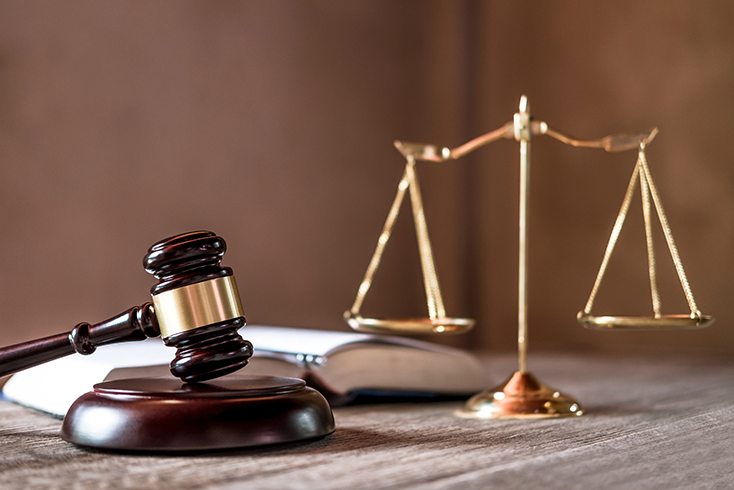How an Assault Lawyer Can Help Mitigate the Consequences of an Assault in New Jersey

When facing assault charges in New Jersey, the consequences can be severe and long-lasting. However, enlisting the help of an experienced assault lawyer can make a significant difference in mitigating these consequences. The article will explore how an assault lawyer can play a crucial role in minimizing the potential repercussions and protecting the rights and interests of individuals facing assault charges in New Jersey.
Table of Contents
1. Navigating Legal Consequences
Navigating the legal complexities involved in assault cases in New Jersey requires a deep understanding of the state’s criminal laws and legal procedures. An experienced New Jersey Assault Attorney is well-versed in the legal provisions of New Jersey’s criminal code, which defines assault offenses and their respective degrees. An experienced lawyer can also analyze the facts of the case to determine the most effective defense strategy.
For example, the lawyer’s in-depth knowledge of the law and familiarity with similar cases enable them to navigate the intricacies of intent or state-of-mind determinations, bolstering the chances of a favorable outcome for the accused. They can guide the accused through the complexities of the legal system, ensuring compliance with procedural requirements, presenting compelling arguments, and advocating for the best possible outcome.
2. Case Evaluation and Defense Strategy
Case evaluation and defense strategy are critical in assault cases in New Jersey. An experienced assault lawyer will thoroughly evaluate the case, considering the evidence, witness statements, and applicable legal requirements such as the New Jersey self-defense laws. Based on this evaluation, the lawyer will craft a tailored defense strategy.
For instance, they may argue self-defense, highlighting the defendant’s reasonable belief of imminent harm. Another unique approach could involve challenging the credibility of witnesses or presenting evidence of an alibi to refute the prosecution’s version of events. These strategies weaken the prosecution’s case and increase the chances of a favorable outcome for the accused.
3. Negotiating Plea Bargains
Negotiating plea bargains is essential to handling assault cases in New Jersey. Rule 3:9-3 of the New Jersey Court Rules outlines one crucial legal backing governing plea negotiations. The rule provides guidelines and procedures for plea bargaining, allowing for reaching a mutually agreeable resolution between the prosecution and defense.
An experienced assault lawyer can leverage their negotiation skills, knowledge of the law, and relationships with prosecutors to advocate for a favorable plea agreement. That may involve reducing charges, securing a lighter sentence, or exploring alternative sentencing options that mitigate the potential consequences for the accused.

4. Gathering Robust Evidence and Witnesses
Gathering robust evidence and witnesses is crucial to handling assault cases in New Jersey. The New Jersey Rules of Evidence govern the legal requirement of evidence relevancy and limits, specifically Rule 401 and Rule 403. Rule 401 establishes that evidence is relevant if it tends to make a fact of consequence more or less probable.
Rule 403, on the other hand, allows the court to exclude relevant evidence if the danger of unfair prejudice, confusion of issues, or misleading the jury outweighs its probative value substantially. Adhering to these rules, an experienced assault lawyer will carefully select and present evidence that is both relevant and admissible, strengthening the defense and maximizing its impact on the case.
5. Sentencing and Appeals
In assault cases in New Jersey, sentencing and appeals involve crucial legal requirements governed by various statutes, including the New Jersey Code of Criminal Justice. The code provides guidelines for imposing penalties, considering factors such as the nature and severity of the assault, the defendant’s criminal history, and any mitigating circumstances.
An experienced assault lawyer can advocate for a fair and reasonable sentence, leveraging their knowledge of these legal requirements and presenting compelling arguments to reduce penalties. Furthermore, the New Jersey Court Rules empower the right to appeal a conviction or sentence, providing an opportunity to challenge errors of law or constitutional violations that may have occurred during the trial.
Conclusion
Navigating an assault case in New Jersey requires the expertise of an experienced assault lawyer. From evaluating the case and developing a solid defense strategy to negotiating plea bargains and advocating for fair sentencing, a skilled lawyer can significantly mitigate the consequences of an assault charge. By leveraging their legal knowledge and strategic approach, they can help protect the rights and interests of individuals facing assault allegations, increasing the chances of a favorable outcome.

 Iowa Bankruptcy Attorney: Expert Guidance for Financial Relief
Iowa Bankruptcy Attorney: Expert Guidance for Financial Relief  Separation Lawyers: Expert Guidance on Binding Financial Agreements
Separation Lawyers: Expert Guidance on Binding Financial Agreements  Finding the Best Acworth Immigration Lawyer
Finding the Best Acworth Immigration Lawyer  How an Employment Lawyer Can Help You?
How an Employment Lawyer Can Help You?  Is The Property Owner Responsible For Drowning Accidents?
Is The Property Owner Responsible For Drowning Accidents?  The Law’s Finest: Why Lawyers Are Indispensable
The Law’s Finest: Why Lawyers Are Indispensable  Contesting a Will: Your Comprehensive Guide
Contesting a Will: Your Comprehensive Guide  Natural Diamonds: Making the Informed Choice
Natural Diamonds: Making the Informed Choice  Breaking the Stigma: Why Small Business Loans are a Smart Investment, Not a Debt Sentence
Breaking the Stigma: Why Small Business Loans are a Smart Investment, Not a Debt Sentence